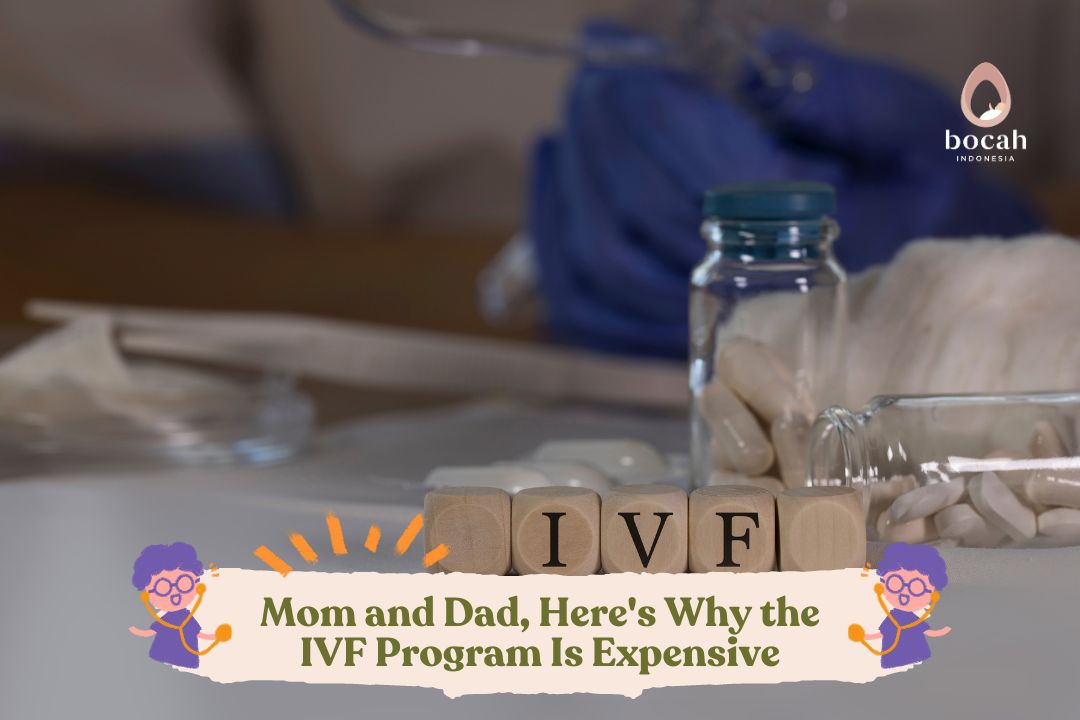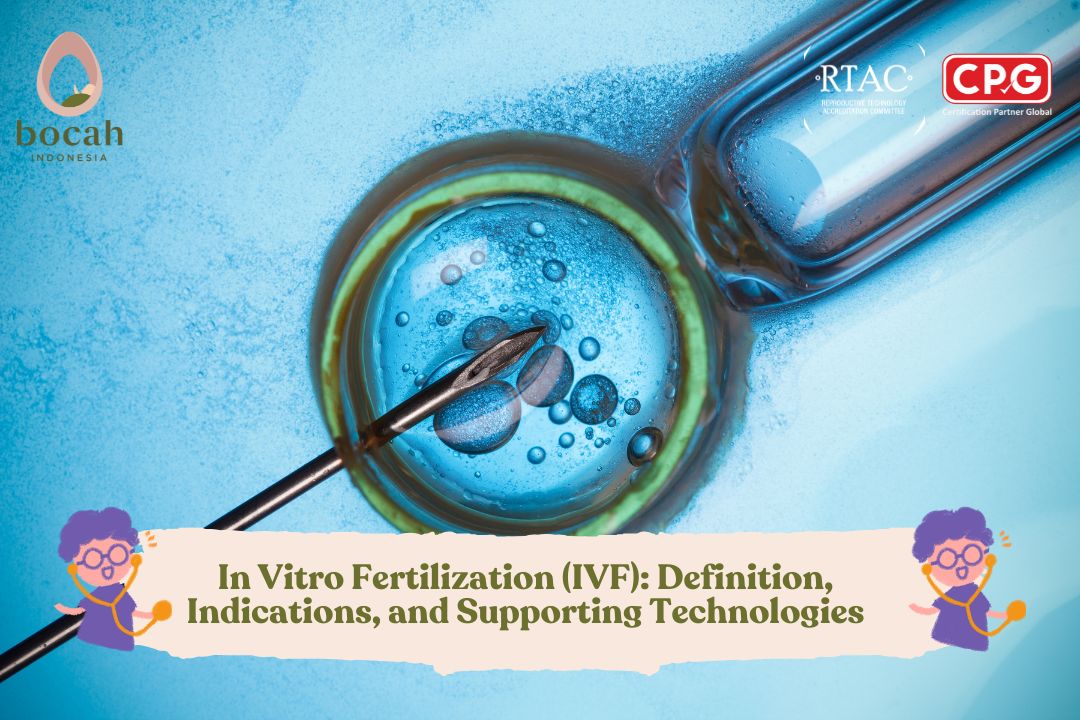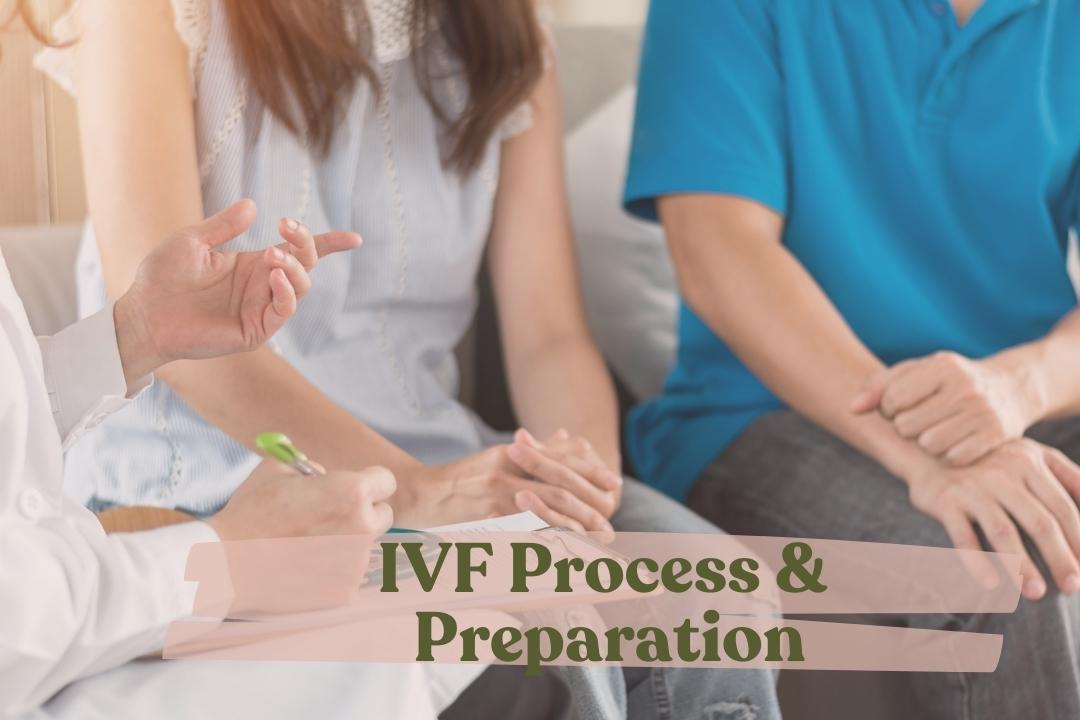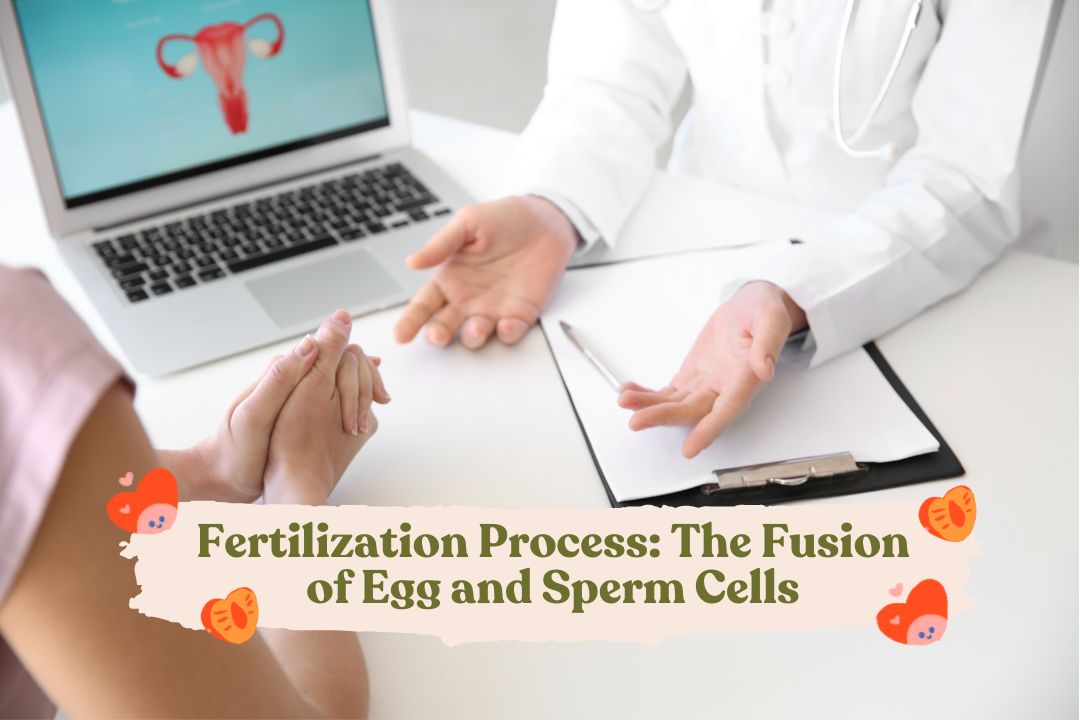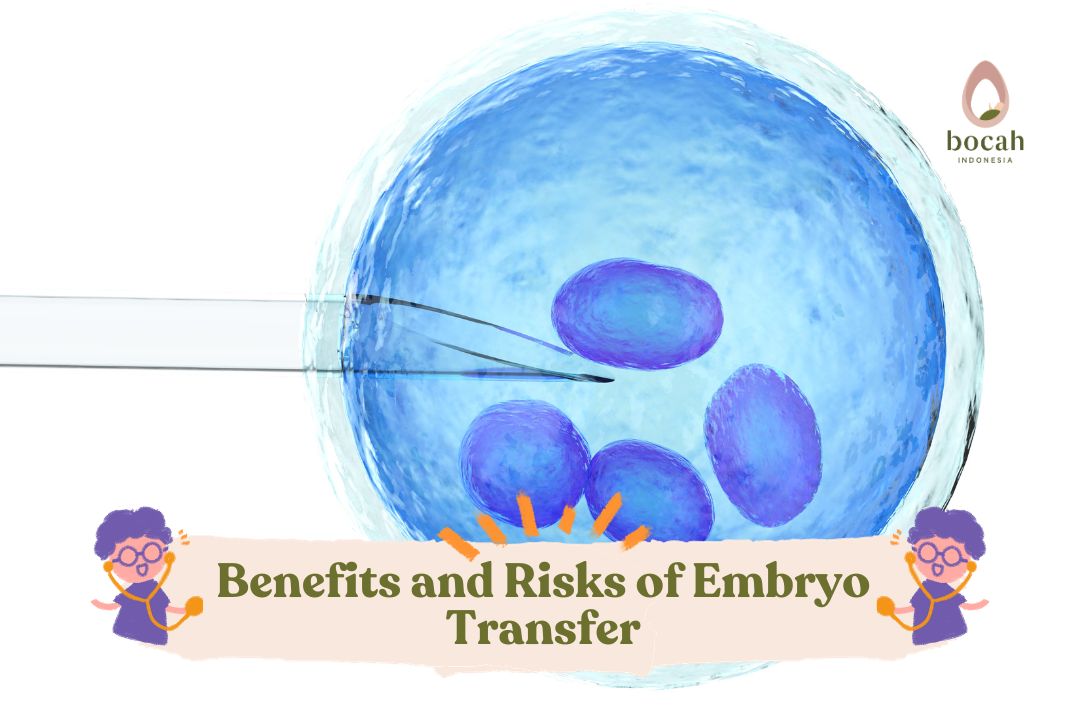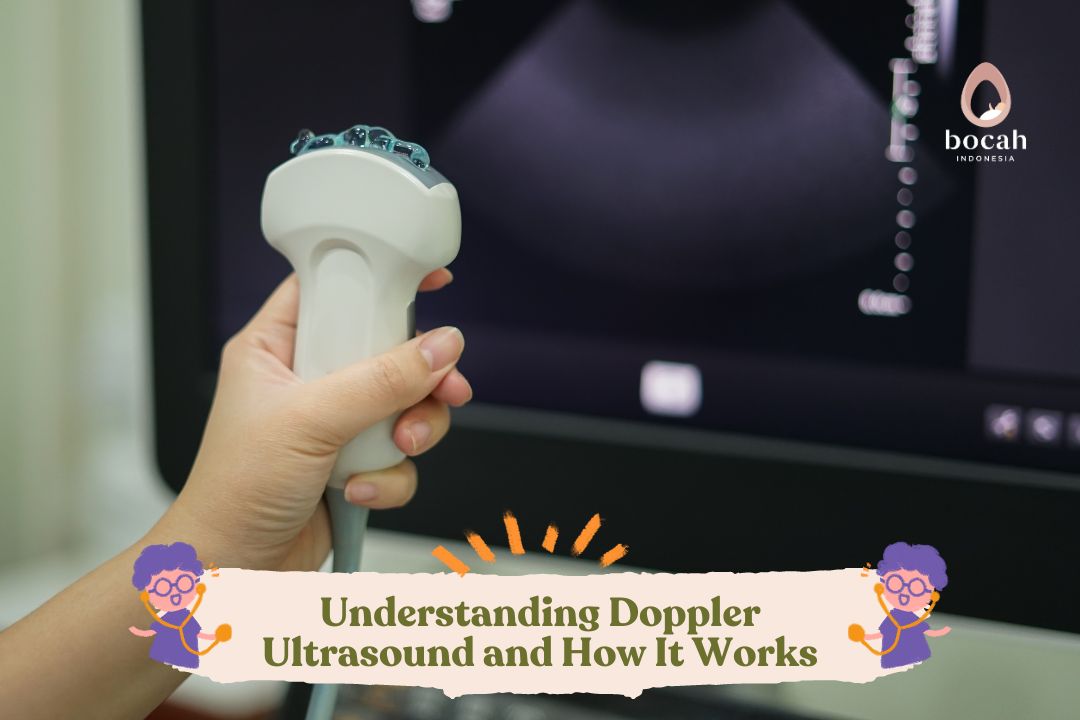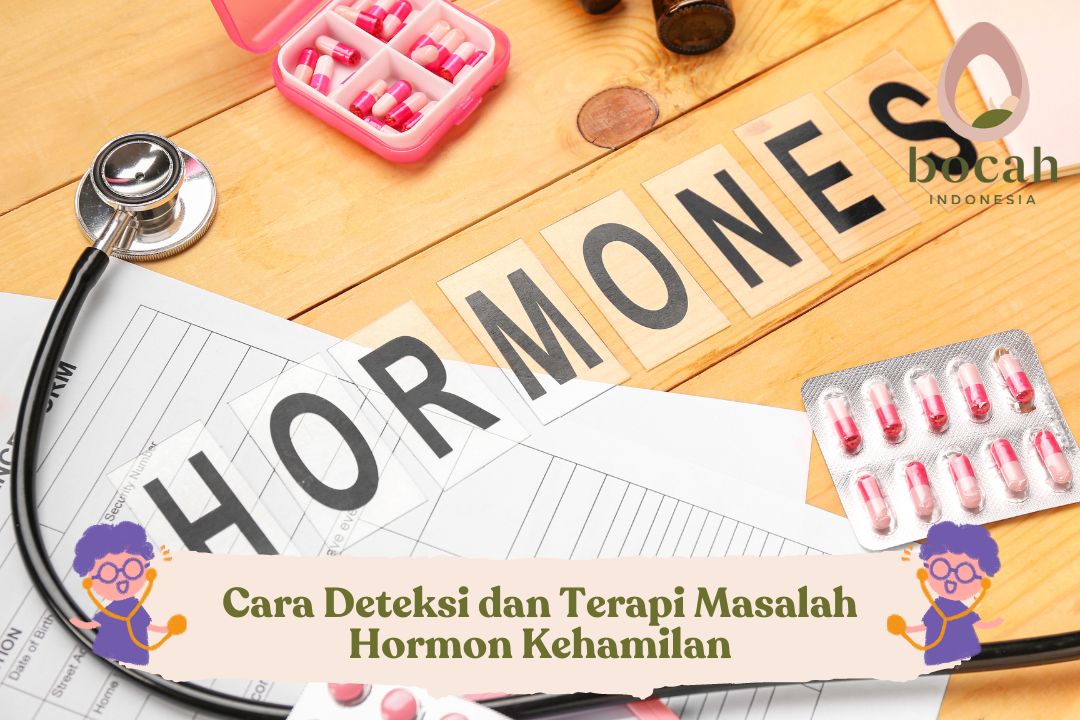What Are Ovaries? and The Role of Ovaries in IVF
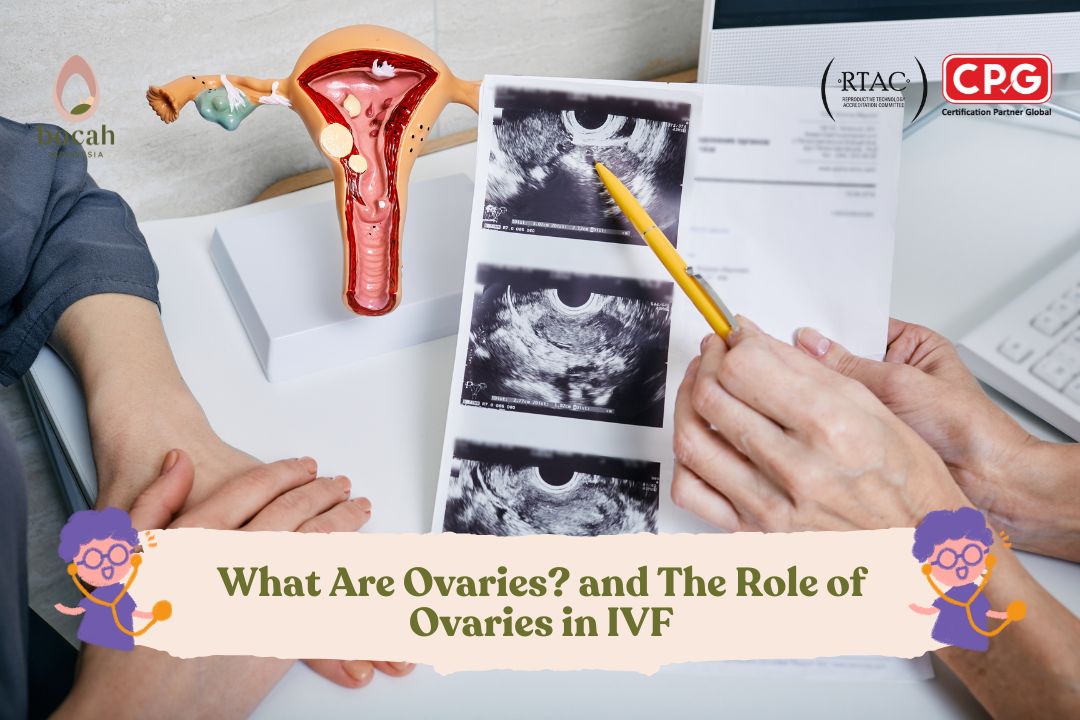
In an in vitro fertilization (IVF) program, ovarian health plays a crucial role in determining success.
Many couples who have been married for a long time but have not yet been blessed with children choose to undergo IVF as a solution to fertility challenges. In this process, the condition of the mother’s ovaries is essential, as optimal ovarian health and function significantly impact the chances of IVF success. Learn more about the relationship between the ovaries and IVF here.
Understanding the Ovaries
The ovaries are one of the most vital organs in a woman’s reproductive system. Despite their small size, their role is significant, from regulating the menstrual cycle to affecting fertility. Maintaining ovarian health is crucial to preventing various disorders such as cysts or infertility.
The ovaries are small, oval-shaped glands located on both sides of the uterus. They measure around 4–6 cm, about the size of a kiwi fruit, depending on age. Despite their small size, they have a grayish-white color and perform essential functions. Each month, the ovaries produce an egg (ovum) that is ready for fertilization by the father’s sperm.
Additionally, the ovaries play a significant role in regulating the menstrual cycle by releasing essential hormones such as estrogen and progesterone. These hormones help prepare the body for pregnancy each month. If the released egg is not fertilized, menstruation occurs, and the cycle repeats.
Tanya Mincah tentang Promil?
Due to their crucial function, ovarian health must be maintained. Eating a nutritious diet, exercising, and undergoing regular health check-ups help keep the ovaries in optimal condition. With healthy ovaries, the chances of conception improve significantly.
The Role of Ovaries in IVF
In an IVF program, the ovaries play a vital role. They are responsible for producing eggs, and both the quality and quantity of eggs significantly influence the chances of success.
Here are some essential ovarian functions in the IVF process:
1. Egg Production (Ovum)
The ovaries serve as the “egg factory.” During IVF, ovarian stimulation with hormonal medication helps produce multiple eggs simultaneously instead of just one, as in a natural menstrual cycle. The more high-quality eggs produced, the higher the chances of successful fertilization.
2. Egg Quality
Besides quantity, egg quality is also crucial. Healthy, mature eggs are more easily fertilized in the laboratory. If the ovaries produce high-quality eggs, the chances of developing healthy embryos increase.
3. Controlled Ovulation Cycle
During IVF, doctors regulate the ovulation cycle using medications to ensure optimal timing for egg retrieval. If the ovaries respond well to stimulation, they are easier to control in the process.
4. Source of Essential Hormones
The ovaries produce essential hormones such as estrogen and progesterone, which maintain hormonal balance during IVF preparation. These hormones also help prepare the uterine lining for embryo implantation.
Given their critical role, maintaining ovarian health is key to IVF success. Healthy ovaries produce high-quality eggs, marking the first step toward pregnancy through IVF.
Factors Affecting Ovarian Health
Several factors can influence ovarian health, including:
- Age: As women age, both egg quantity and quality decline.
- Lifestyle: Poor diet, lack of exercise, and smoking can damage ovarian health.
- Hormonal Disorders: Conditions like PCOS or hormonal imbalances can disrupt ovarian function.
- Toxin Exposure: Environmental chemicals or contaminated food can negatively impact the ovaries.
Ovarian Preparation Before IVF
Preparing the ovaries for IVF is a crucial step in obtaining healthy, high-quality eggs. The process involves several stages to ensure the ovaries produce an adequate number of mature eggs.
Here are the steps to prepare the ovaries before undergoing IVF:
1. Consultation and Initial Examination
Before starting IVF, women undergo thorough assessments to evaluate ovarian health, including blood tests to check hormone levels and ultrasound (USG) examinations. These tests help determine ovarian condition and egg reserves.
2. Ovarian Stimulation
During IVF, hormonal medications stimulate the ovaries to produce more eggs than usual. These medications are administered as daily injections to increase the number of eggs available for fertilization. A higher number of eggs improves the chances of IVF success.
3. Regular Monitoring
During the stimulation phase, doctors closely monitor ovarian response through ultrasounds and blood tests. This monitoring ensures eggs develop properly and are retrieved at the optimal time.
4. Ovulation Trigger Injection
Once the eggs mature, an ovulation trigger injection (hCG) is given to ensure the eggs are ready for retrieval. Proper timing is crucial to ensure optimal egg quality.
5. Egg Retrieval (Oocyte Retrieval)
Approximately 34–36 hours after the trigger injection, doctors retrieve eggs from the ovaries using ultrasound guidance and mild anesthesia to ensure a painless procedure. The collected eggs are then taken to the laboratory for fertilization.
How to Maintain Ovarian Health
During preparation, maintaining overall health is crucial. A nutritious diet, regular exercise, and stress management help keep the ovaries in optimal condition. Excessive stress can affect ovarian health by:
- Disrupting hormonal balance, including reproductive hormones like estrogen and progesterone.
- Lowering egg quality due to increased cortisol (stress hormone) levels.
- Hindering ovulation, reducing IVF success chances.
To keep ovaries healthy and optimal for IVF, consider the following steps:
- Eat nutritious foods such as leafy greens, healthy proteins, and good fats.
- Exercise regularly to maintain hormonal balance.
- Manage stress through meditation or enjoyable activities.
- Maintain a healthy weight to prevent hormonal imbalances.
- Undergo routine health check-ups to detect ovarian issues early.
Healthy ovaries produce high-quality eggs, which are essential for IVF success. Some recommended supplements to enhance ovarian health include:
- Folic Acid: Supports the development of healthy eggs.
- Vitamin D: Helps regulate reproductive hormones.
- CoQ10: Improves egg quality.
- Omega-3: Supports hormonal health and ovarian function.
- Myo-Inositol: Enhances ovarian sensitivity to stimulation hormones.
With proper preparation, healthy ovaries play a significant role in IVF success. These steps ensure that retrieved eggs are ready for fertilization, increasing the chances of conception.
That’s an overview of the relationship between the ovaries and IVF. Learn more about the IVF process at Bocah Indonesia. Subscribe to stay updated with the latest information.
Sources:
- American Pregnancy Association (2023). IVF – In Vitro Fertilization.
- National Institute of Health (2022). National Library of Medicine. In Vitro Fertilization.
- National Institute of Health (2022). MedlinePlus. In Vitro Fertilization (IVF).
- Mayo Clinic (2021). Test & Procedures. In Vitro Fertilization (IVF).



